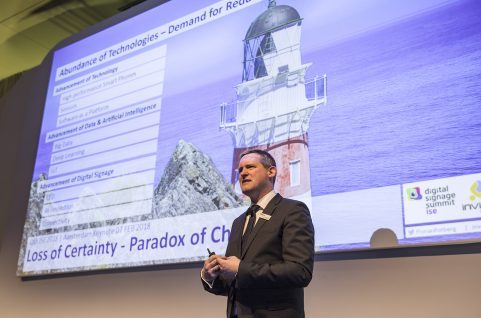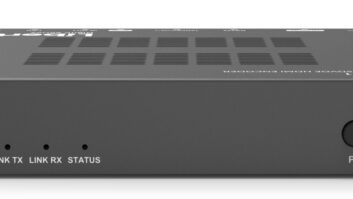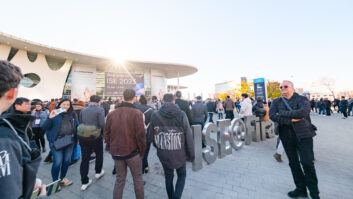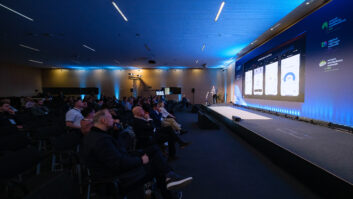
While delivering a true ‘omnichannel’ experience may still be some way off, digital signage has now reached the point where digital surfaces are not enough. Consumers are looking for a fluid experience.
Florian Rotberg, managing director of invidis consulting, revealed this insight and other trends in the digital signage market at the opening keynote for DSS ISE yesterday morning.
According to Rotberg, the market is currently moving towards “a more professional, centrally-managed, data-driven model” which is delivering “positive KPIs and solid ROI”.
“Everything we’ve preached has finally come to fruition,” he added.
This is backed by the latest growth figures released by Futuresource that reveal the global digital signage market is now worth $12.6 billion and grew by 22% in 2017.
And with 80% of purchases still made offline, Rotberg argued that there is still room in the market for further growth, especially in EMEA, where market share is 23% and year-on-year growth is 8%.
In terms of the future role for systems integrators, the analyst said that customers wanted brands they could trust who are able to reduce complexity.
“This is why you have companies like Accenture entering this market,” he pointed out. “They have no clue, but they are a trusted brand. Maybe if you are lucky, they will hire you for your expertise!’
Rotberg added that these trusted brands are now driving consolidation among other SIs in the market. There were more than 20 acquisitions in Western Europe in Q4 last year – many of which were triggered by Stratacache’s acquisition of rival Scala.
In terms of software trends. Rotberg said that three main players would dominate the market – Adobe, Google and Samsung – because no one will take them over, and they are large enough to deliver services across the world.
Integrators are also experimenting with complementary solutions for 360 experiences – including “interaction, lighting, scent and sound”, said Rotberg.
None of this, he added, would replace storytelling. This point was echoed by fellow panellist John Melillo, CEO of global integrator brand Diversified, who said during the presentation that followed: “I don’t like hang and bang – that’s where we were 10 years ago. If you are not working with your partners today and asking about the storytelling, you are missing the point of our business,” he said.







